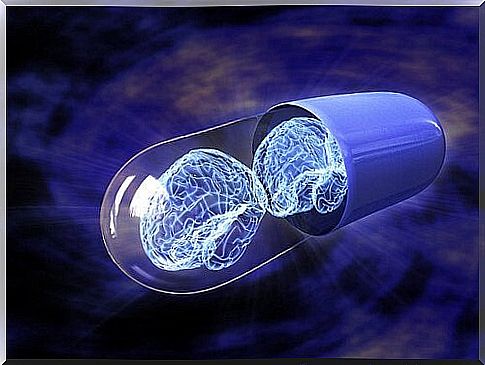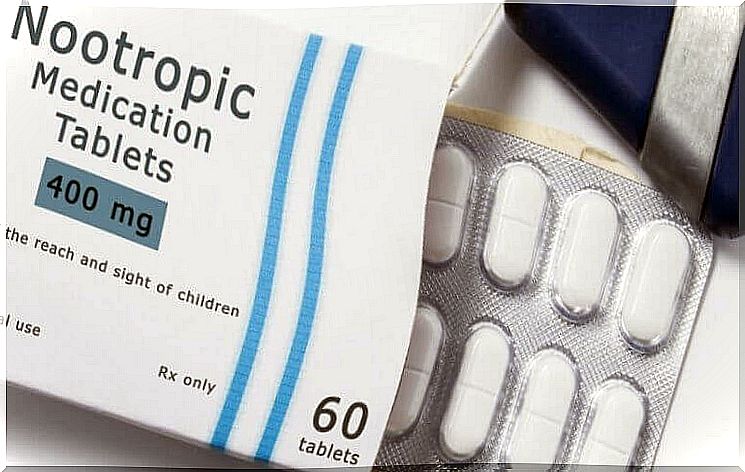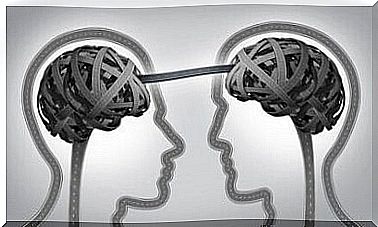What Are Nootropics And How Do They Enhance Our Intelligence?

Nootropics are also known as “smart drugs” for the benefits they promise, which are not few: increase mental performance and act as cognitive enhancers. Its popularity in recent years has skyrocketed to the point that thousands of people already include in their breakfast this golden pill to be more productive with at work.
To put the nootropics in context, just remember the “Limitless” series. In it, Bradley Cooper was taking an experimental drug called “NZT-48”. Soon after consuming it, his world became more vivid, his senses sharpened and his cognitive potential increased to 200%, to the point that he was able to learn several languages fluently, be a financial genius at Wall Street or remembering everything you’ve seen, read and heard.
Something like that would allow us – apparently – to be more productive than Stephen King writing books, memorizing a document in half the time, or activating the neurological structures capable of awakening the musical or mathematical genius in each of us. And I say “apparently” because reality is different, a reality no doubt more adequate, more limited and less glittering but still interesting.
The pharmaceutical industry, for example, invests millions of dollars each year in the development of new nootropics, and it does so for a very simple reason: demand multiplies.
Professional pressure is increasing, we know that, you need to be alert, you need to improve your concentration, be more mentally agile, more creative, more productive… Everyone wants to give more of themselves without having to resort to dangerous substances, and that’s where nootropics or “smart drugs” come into play.
It is currently known that these drugs are heavily consumed by university students, military pilots, computer programmers or creatives from advertising companies who seek in them an apparently innocuous resource with which to expand their mind, focus attention and give their best to us. your goals.
But… do nootropics really work?

Nootropics: an accidental discovery that gave way to “smart drugs”
Some call nootropics “the drug of the future”, a product of a fast-paced society that wants to go beyond its own possibilities. However, this term bothers, does not please and is not accepted because – in general – they have no side effects and are not “psychostimulating”. That’s why they are classified in a much more inspiring way: “cognitive enhancers”.
On the other hand, some also venture to say that nootropics will very soon be our evolutionary menu, and that thanks to them we will take our brain development to another level.
As curious as it may seem, this is precisely the purpose of large companies and well-known entities. Indeed, Silicon Valley – the world capital of the technology industry – has been working with nootropics for years, to the point of discovering new mechanisms by which to enhance their properties, their effects, their duration and even their application.
Not only will they improve attention and creativity, but it is also possible to experience lucid dreams or reach a level of relaxation similar to that achieved after several years of meditation. However, we know that for many of our readers some data may seem pure science-fiction and that is why we need to go step by step. Let’s look first at its origin.
From sleep inducers to attention activators
We are in the 60s and, in a Belgian laboratory called “Union Chimique Belge”, the Romanian neuropharmacologist Corneliu Giurgea works on the synthesis of various chemical compounds with a very specific purpose: to induce sleep.
However, he ended up discovering a very special type of molecule that allowed him to create the first nootropic in history : Piracetam. This drug, far from reducing neurological excitability and providing rest, actually did just the opposite: put the mind on alert and improve cognitive functions such as memory and concentration.
- This was possible thanks to the chemical modulation of neurotransmitters such as acetylcholine and glutamate, and in addition, without very adverse side effects.
- Piracetam by Corneliu Giurgea was soon commercialized, allowing other proposals to arrive little by little, such as Oxiracetam, Aniracetam, Pramiracetam and Fenylpiracetam.
The mechanism of action of nootropics varies among them. However, most of them have effects on vasodilation, that is, they improve blood flow to the brain, providing it with more oxygen, more nutrients and glucose, the essential energy source that the brain uses to guarantee us long periods of concentration.

Similarly, and as a curious fact to reflect, it is known that Silicon Valley works with the nootropics combining them with biohacking, that is, they seek to “hack” certain brain functions through various chemicals to enhance the functions of the brain. thought.
It seems that the door to the human brain’s evolutionary leap is starting to open its doorknob…
What are the effects of nootropics? Are they really as beneficial as they seem?
The objective of the pharmaceutical companies with the nootropics is twofold. On the one hand, and as we already know, the search for the improvement of basic cognitive processes, something that in most cases, they manage to do. The second aspect is that they function as neuroprotectors and that their possible side effects are minimal, not to say non-existent.
But one of the biggest problems that health experts are discovering is that both university students, business people and other people with a lifestyle characterized by stress, acquire nootropics through the internet, without worrying about their origin or, what’s worse, the way they should be consumed.
Let’s look at an example. Caffeine is a natural nootropic, as are omega 3 fatty acids. If I consume 10 cups of coffee in one night, I’m likely to get headaches, dizziness, and high blood pressure. Likewise, the student who buys a nootropic drug over the internet without knowing its composition and form of administration, with the sole purpose of passing the test after tomorrow, will possibly feel the adverse effects of this improvement in attention and memory beforehand.

Therefore, it is necessary to know that nootropics help but are not a miracle. Furthermore, these benefits will be realized if they are consumed properly and with medical advice.
On the other hand, and just out of curiosity, it is worth mentioning that Russian laboratories have created a new family of nootropics, all of which are derived from corticotropin, the stress hormone and GABA receptor agonists such as Phenibut or Tolibut. These drugs have lately been in great demand for their anxiolytic and stress-reducing effects, but it must be said that their side effects are without a doubt the most dangerous on the market, as they cause dependence in the long run.
How to use nootropics
Experts say that there are some basic precautions that must be followed when consuming some type of nootropic:
- Find the nootropic that best suits your needs
- It is necessary to consult an expert who can guide each person about the options that exist in the market.
- Each person has a type of neurochemistry, and in general, it is common to start with very low doses, experimenting with each other until you find the right one.
- When experiencing any type of discomfort, such as headache or dizziness, it is necessary to immediately stop using this type of nootropic drug.
- Similarly, it must be remembered that these drugs are not immediate acting. The brain needs to get used to them; in fact, its effect will start to be noticed after a few days or weeks.
They only work if accompanied by a proper diet, avoiding a sedentary lifestyle
If we want to modulate our brain chemistry so that it works at its best level, it will be necessary to obtain a series of adequate nutrients to activate the mechanism of action of these smart drugs. Therefore, a balanced diet rich in fresh fruits, vegetables, omega 3 and omega 6 fatty acids is essential for nootropics to take action.
- Similarly, if we lead a sedentary life, we will have a slower, less efficient metabolism and, in addition, the liver function will also not be able to process the components of nootropics in the best way.
Physical activity and a varied diet low in saturated fat is essential for these drugs to achieve their goal.
Types of Nootropics
It is important to point out here that not all nootropics are pharmaceuticals. Many of them are non-prescription because they have natural components, and because they are very easy to find in health food stores. However, before starting to consume cognitive stimulants it is always better to consult a specialist.
For this, it is necessary to define the objective, because as we have seen, the offer of nootropics is quite wide, and everything indicates that it will be even greater in the coming years.
- Nootropics to improve mood.
- Nootropics to improve concentration.
- Nootropics to fight anxiety.
- Nootropics to improve memory.
- Nootropics to improve rest, recovery and sleep.
- Nootropics with an anti-aging or longevity focus.

To conclude, it is worth remembering that nootropics are not food supplements. It is not recommended to use them lightly, especially as the offer is increasingly broader and their effectiveness less reliable. Therefore, even knowing that we all want to optimize our own cognitive abilities to adapt to the current demands of the labor market, it will always be better to look for other strategies, other paths.
Despite this, we will remain attentive to the evolution of these cognitive enhancers and their impact on our future.
References:
- Ruiz Franco, J. (2005). Smart Drugs. Editorial Paidotribo.
- Evan Brand (2016) The Everything Guide To Nootropics. Berkley Books









